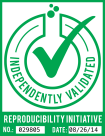FZD7 Antikörper (AA 501-574)
Kurzübersicht für FZD7 Antikörper (AA 501-574) (ABIN710051)
Target
Alle FZD7 Antikörper anzeigenReaktivität
Wirt
Klonalität
Konjugat
Applikation
-
-
Bindungsspezifität
- AA 501-574
-
Kreuzreaktivität
- Human, Maus, Ratte
-
Homologie
- Dog,Cow,Pig,Chicken,Guinea Pig
-
Aufreinigung
- Purified by Protein A.
-
Immunogen
- KLH conjugated synthetic peptide derived from human Frizzled 7
-
Isotyp
- IgG
-
-
-
-
Applikationshinweise
-
WB 1:300-5000
ELISA 1:500-1000
FCM 1:20-100
IHC-P 1:200-400
IHC-F 1:100-500
IF(IHC-P) 1:50-200
IF(IHC-F) 1:50-200
IF(ICC) 1:50-200 -
Beschränkungen
- Nur für Forschungszwecke einsetzbar
-
-
- by
- Alamo Laboratories Inc
- No.
- #029805
- Datum
- 26.08.2014
- Antigen
- Chargennummer
- 120426
- Validierte Anwendung
- Western Blotting
- Positivkontrolle
- MDA-MB-231 cells
- Negativkontrolle
- C6/36 cells (non-reactive species)
- Bewertung
- A strong band was observed in the positive control sample at the expected molecular weight of ~64 kDa. The band is also faintly observed in the negative control sample, which may indicate species cross-reactivity.
- Primärantikörper
- Antigen: Frizzled Family Receptor 7 (FZD7)
- Catalog number: ABIN710051
- Lot number: 120426
- Antibody Dilution: 1:100
- Sekundärantikörper
- Antigen: Goat Anti-Rabbit IgG (H + L)-HRP Conjugate
- Lot number: L170-6515
- Antibody Dilution: 1:10,000
- Full Protocol
- 1. The cell extracts were heated at 95°C for 5 minutes in 1X SDS Sample Buffer containing 1% SDS and 1.25% β-mercaptoethanol.
- 2. 15 μl of heated culture-media were loaded and resolved on 8-16% SDS-polyacrylamide gel.
- 3. The Thermo Scientific - Spectra Multicolor Broad Range (Cat # 26634) were used as molecular mass markers.
- 4. Proteins were then transferred onto PVDF membrane by wet transfer and protein transfer was confirmed with Ponceau-S staining.
- 5. The PVDF membrane was incubated with 25 ml of blocking buffer [Tris Buffered Saline, pH 7.4 plus 0.1% TW20 (TBST)] containing 5% (W/V) BSA at room temperature for 1 hour.
- 6. The membrane was rinsed with TBST once.
- 7. The membrane was immersed with the protein side up in the primary antibody solution in TBST containing 5% (W/V) BSA and incubated for 24 hours at 4°C.
- 8. The membrane was rinsed in TBST thrice for 5 minutes each.
- 9. The membrane was incubated in the HRP-conjugated secondary antibody solution in TBST containing 5% (W/V) BSA and incubated for 1 hour at room temperature (~26°C) with gentle agitation.
- 10. The membrane was rinsed thrice TBST thrice for 5 minutes each.
- 11. The membrane was rinsed in TBS twice for 30 seconds each.
- 12. Signals were detected with ECL-2 Substrate. The blot was scanned for 45 minutes.
- 13. The membrane was rinsed three times TBST.
- 14. Incubated in Acidic Glycine Stripping Buffer at room temperature with gentle agitation for 3 times, 10 minutes each.
- 15. The membrane was washed in TBST 2 times for 10 minutes each.
- 16. Repeated Steps 5-12 with the loading control antibody (for Anti-actin) and its matching secondary antibody.
- Anmerkungen
- - No experimental challenges noted.
Validierung #029805 (Western Blotting)![Erfolgreich validiert 'Independent Validation' Siegel]()
![Erfolgreich validiert 'Independent Validation' Siegel]() ValidierungsbilderProtokoll
ValidierungsbilderProtokoll -
-
Format
- Liquid
-
Konzentration
- 1 μg/μL
-
Buffer
- 0.01M TBS( pH 7.4) with 1 % BSA, 0.02 % Proclin300 and 50 % Glycerol.
-
Konservierungsmittel
- ProClin
-
Vorsichtsmaßnahmen
- This product contains ProClin: a POISONOUS AND HAZARDOUS SUBSTANCE, which should be handled by trained staff only.
-
Lagerung
- 4 °C,-20 °C
-
Informationen zur Lagerung
- Shipped at 4°C. Store at -20°C for one year. Avoid repeated freeze/thaw cycles.
-
Haltbarkeit
- 12 months
-
-
-
: "MicroRNA-142-3p inhibits cell proliferation and invasion of cervical cancer cells by targeting FZD7." in: Tumour biology, (2015) (PubMed).
-
: "MicroRNA-142-3p inhibits cell proliferation and invasion of cervical cancer cells by targeting FZD7." in: Tumour biology, (2015) (PubMed).
-
- FZD7 (Frizzled Family Receptor 7 (FZD7))
-
Andere Bezeichnung
- Frizzled 7
-
Hintergrund
-
Synonyms: FzE3, Frizzled-7, Fz-7, hFz7, FZD7
Background: Receptor for Wnt proteins. Most of frizzled receptors are coupled to the beta-catenin canonical signaling pathway, which leads to the activation of disheveled proteins, inhibition of GSK-3 kinase, nuclear accumulation of beta-catenin and activation of Wnt target genes. A second signaling pathway involving PKC and calcium fluxes has been seen for some family members, but it is not yet clear if it represents a distinct pathway or if it can be integrated in the canonical pathway, as PKC seems to be required for Wnt-mediated inactivation of GSK-3 kinase. Both pathways seem to involve interactions with G-proteins. May be involved in transduction and intercellular transmission of polarity information during tissue morphogenesis and/or in differentiated tissues.
-
Gen-ID
- 8324
-
UniProt
- O75084
-
Pathways
- WNT Signalweg, Stem Cell Maintenance
Target
-


 (1 reference)
(1 reference) (1 Validierung)
(1 Validierung)



